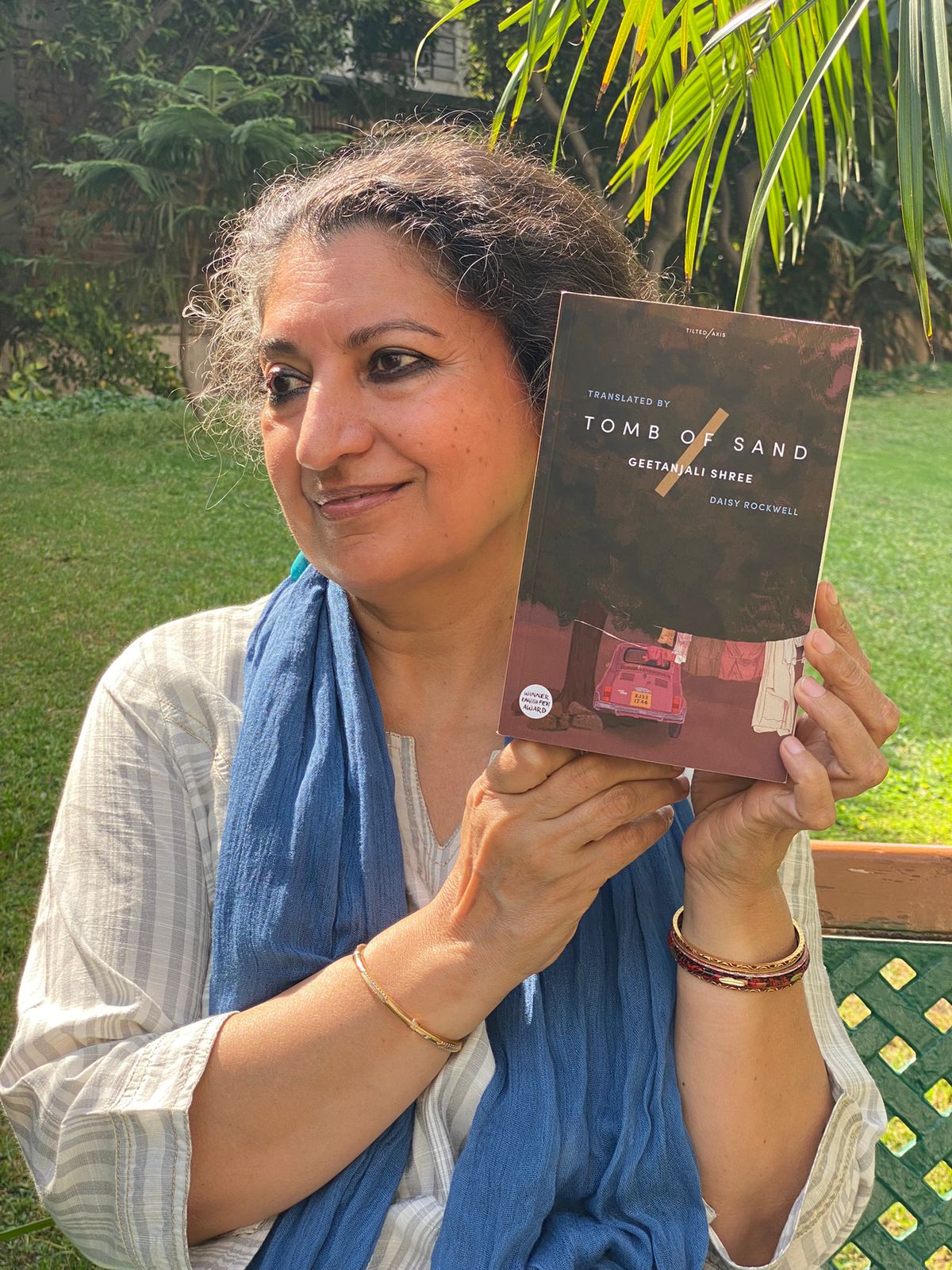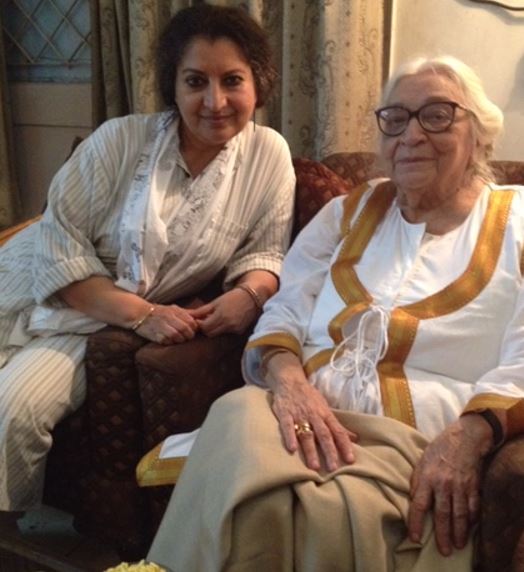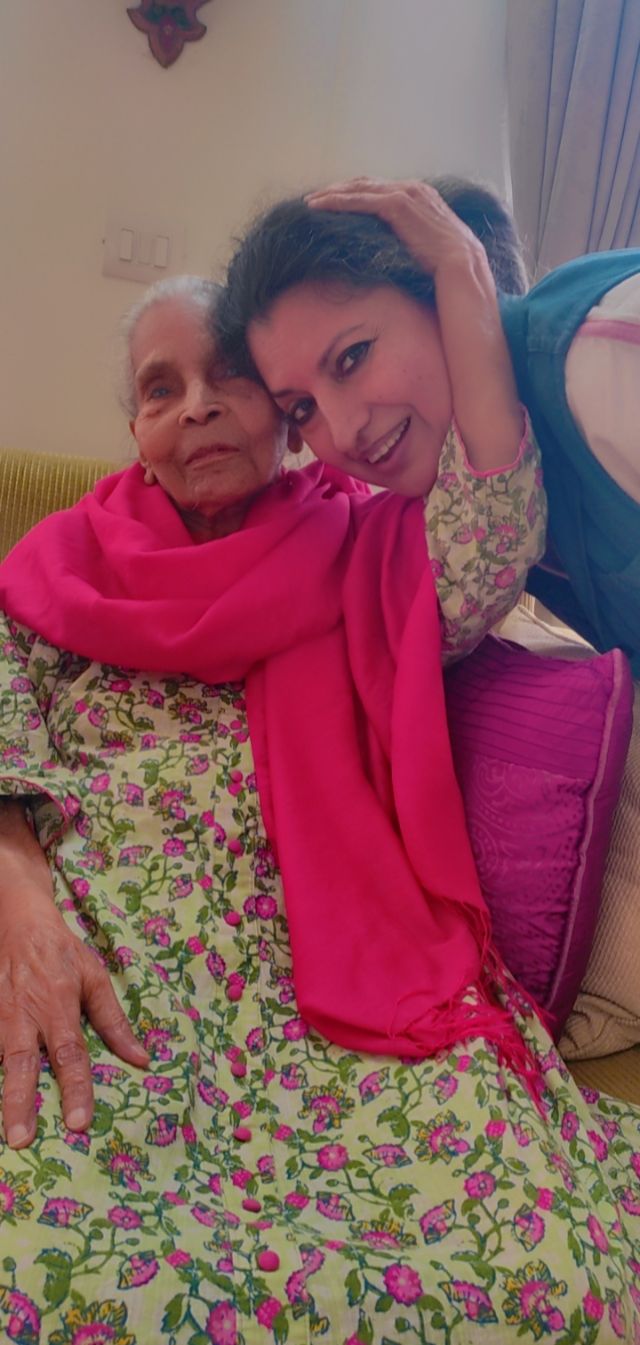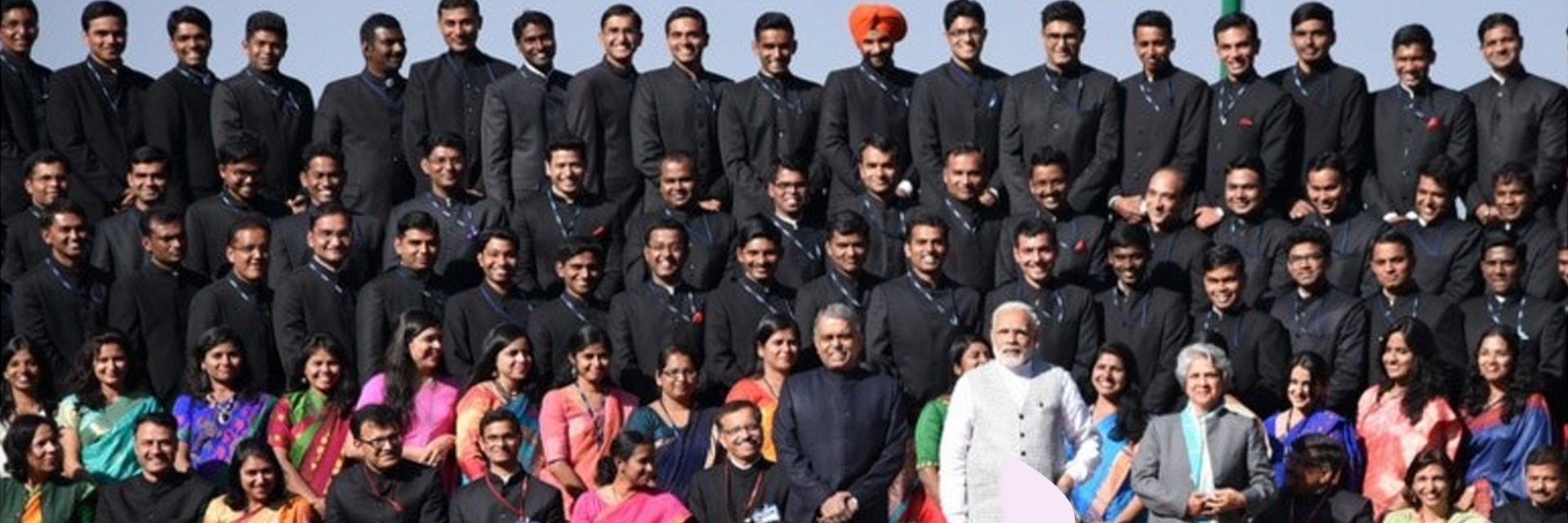(March 25, 2022) When Geetanjali Shree was a young girl her mother would often joke about how she wanted to tell stories more than she wanted to hear them. Today an established Hindi author, her last book Ret Samadhi was recently longlisted for the Man Booker International Prize. The brilliant author of five Hindi novels and five short stories, Geetanjali started her writing journey as a nine-year-old. “I was fascinated by stories and always wanted to write my own,” smiles Geetanjali during an interview with Global Indian.
“My mother would narrate stories to us siblings. Also, since my father was a bureaucrat, we had several people working for us at our house. I remember listening to stories from those ladies as a child. I was mesmerised by how words could create a whole new world, which was so engrossing. Unfortunately, I do not have those stories though even I am curious to know what I wrote back then,” adds the Delhi-based author.
For the love of Hindi
Growing up in various towns of Uttar Pradesh in the late 50s and 60s with four siblings, the 64-year-old author reveals it was the vibrant culture of those towns and their language that gave her a foundation. While she attended an English-medium school, the scarcity of English-language children’s books turned out to be a “blessing in disguise” for her. “I used to read Chandamama and Nandad as a child, and that gravitated me towards tales from the Ramayana, Mahabharata, Arabian Nights, Panchatantra, Kathasaritsagara and Chandrakanta Santati. Had I not experienced this childhood, I am not sure if I would have been able to write these stories,” reminisces the author who has no doubt been influenced by her historian husband.

Geetanjali Shree, author, Photograph by Jayanti Pandey
Even when she moved to Delhi to pursue bachelor’s in history from Lady Shri Ram College, Delhi University, and later master’s from Jawaharlal Nehru University, Geetanjali felt a tug towards Hindi literature. “In JNU, I was pretty sure that I wanted to pursue writing in Hindi. My dissertation topic was on Hindi literature representing the nationalist thought of the pre-Independence years, in which I focussed on Prem Chand and his writings.”
Slow, but steady…
Calling herself a “slow writer,” Geetanjali feels that she started her professional journey as a writer a little late. Her first story, Bel Patra (1987) was published in the literary magazine Hans, however, it was the publication of her short story collection Anugoonj (1991) that catapulted her into the Hindi literary scene. Post this, several other works of Geetanjali, including Mai (1993), Hamara Shahar Us Baras (1998), Tirohit (2001) and Khālī Jagah (2006) hit the bookshelves across India.
However, it’s her 2018 novel Ret Samadhi that has put her on the global map. Translated recently into English as Tomb of Sand by Daisy Rockwell, it has become the first Hindi-language novel to be nominated for the International Booker Prize. Calling it a “proud moment,” she is quite happy to have scripted history. “It is a very proud moment for me, not just as a writer, but also as an Indian. This will bring a certain focus on Hindi literature and other Indian languages. We need people to realise that there is so much literature waiting to be discovered.”

Geetanjai with her favourite author, Krishna Sobti
Ret Samadhi narrates the story of an 80-year-old woman, who is depressed after her husband’s death. Eventually, the lady comes out of the depression and decides to visit Pakistan to finally confront the past that she left behind during the Partition.
Giving an insight about the much-talked-about book, she shares, “Actually it was the image of a woman in a joint, orthodox, middle-class family, who was sitting with her back turned, that stayed with me for a very long time. Somewhere it made me wonder if she was turning her back to the people around her, or her life. It took me around seven to eight years to finish Ret Samadhi.”
An author who likes to create a dialogue with her reader through all her books, Geetanjali’s work is not limited to the Hindi literatis. Many of her books have been translated into English, French, and even German. However, the author doesn’t believe in picking her own translator. “I have never picked any author to translate my books. I feel I have been lucky in that area, as the translators have done justice to my work. In fact, I had never met Daisy Rockwell, when I heard that she was thinking of translating Ret Samadhi into English. However, when we spoke about the book, I realised that she had a sense of emotions and relationships in the book,” she smiles.

Geetanjali with her mother
Not just an author
While she doesn’t like calling herself a “theatre person,” the author has worked with prominent thespians such as Anuradha Kapur and Kirti Jain on various plays. Having written many plays for the theatre group Vivadi, Geetanjali shares that she loves working in an interactive environment. “Writing something for theatre is a collective exercise, with everyone from the director to the actors and others contributing to the storyline. I really like working like this,” she adds.
When Geetanjali isn’t busy weaving magic with words, she loves listening to music. “I love a whole range of genres – Hindustani classical, old Bollywood, jazz, Baul and Rajasthani folk,” she concludes.




